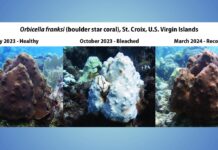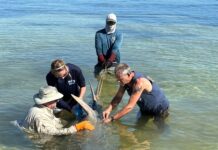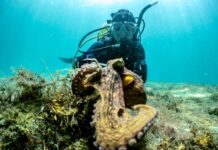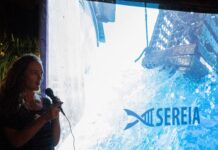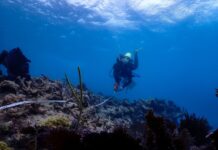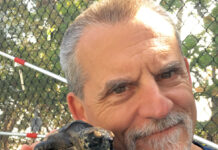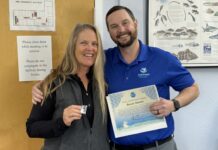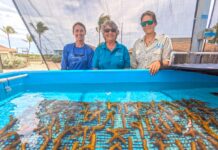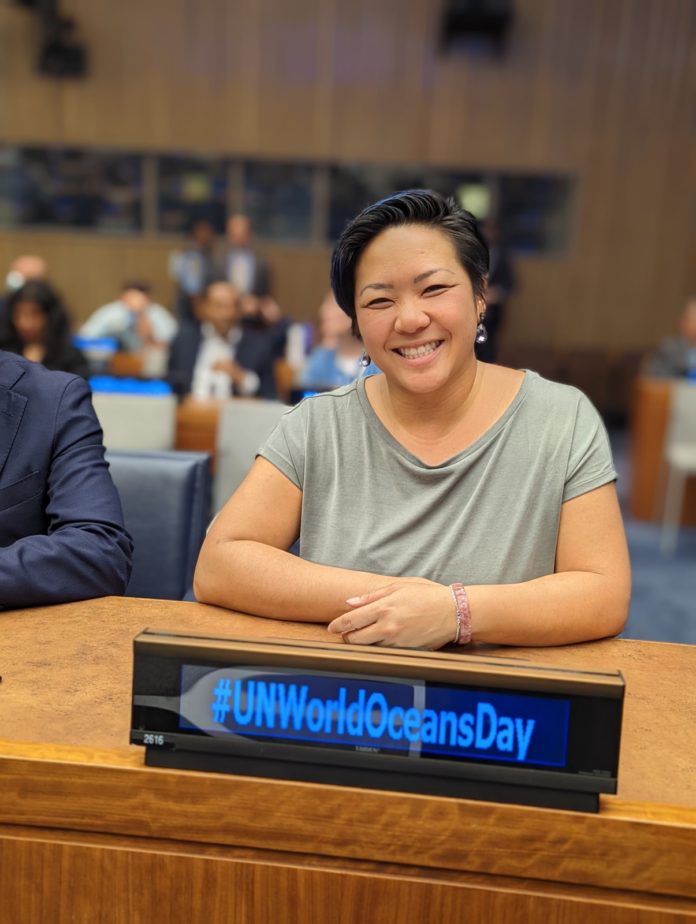
The ocean matters.
Obviously, living here in the Florida Keys, we know this. In fact, the importance of our local environment is one of the things that most everyone – regardless of political leanings and beliefs – knows to be true.
I didn’t have to go to New York City for World Oceans Day at the United Nations for someone to tell me this. Nevertheless, while that international celebration of all things blue did lend itself to some general declarations of the ocean’s importance, I was grateful and heartened to see some issues important to us here in the Florida Keys on the agenda and some familiar faces suggesting global solutions. I am happy to share those with you now.
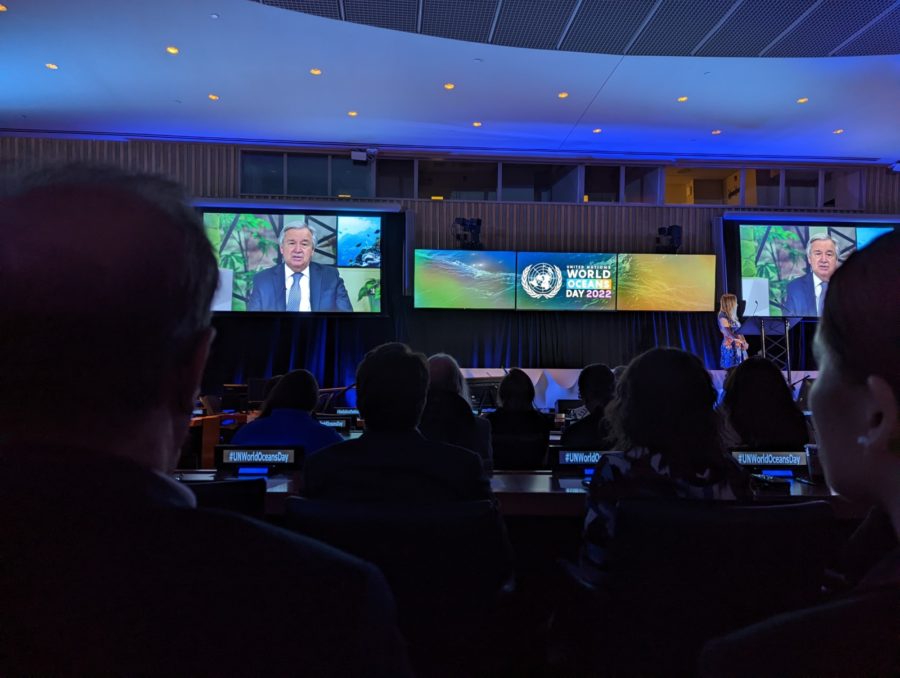
The most obvious and critical discussions centered around coral, and how to help reefs survive warming oceans. According to NOAA, nearly all coral reefs around the world will be threatened by 2050. Local and global pressures, from overfishing to ocean acidification, are to blame.
This doesn’t bode well for us in the Keys, where our coral reef – the third-largest barrier reef in the world – underpins our entire island economy. NOAA estimates that the coral reefs in southeast Florida have an asset value of $8.5 billion. They generate $4.4 billion in local sales, $2 billion in local income and 70,400 full- and part-time jobs. Because we are a tourism-based economy, the United Way estimates that some 60% of our Keys residents depend on the marine environment for their livelihood.
Naturally, many tourists and visitors choose the Keys as their destination of choice to share in our 360-degree access to the ocean. From fishing to boating, sunset sailing to scuba diving, there’s a little something for everyone on the rock. For locals, we also realize that our coral reef supports the hotels, restaurants, shops and other businesses that employ so many of us. We need a healthy reef and a sustainable ocean economy in order to keep the Keys going.
Therefore, when our oceans aren’t healthy, it’s also a problem. There’s less coral and fewer fish. Less life underwater means fewer tourists coming to visit. Everything and everyone suffers.
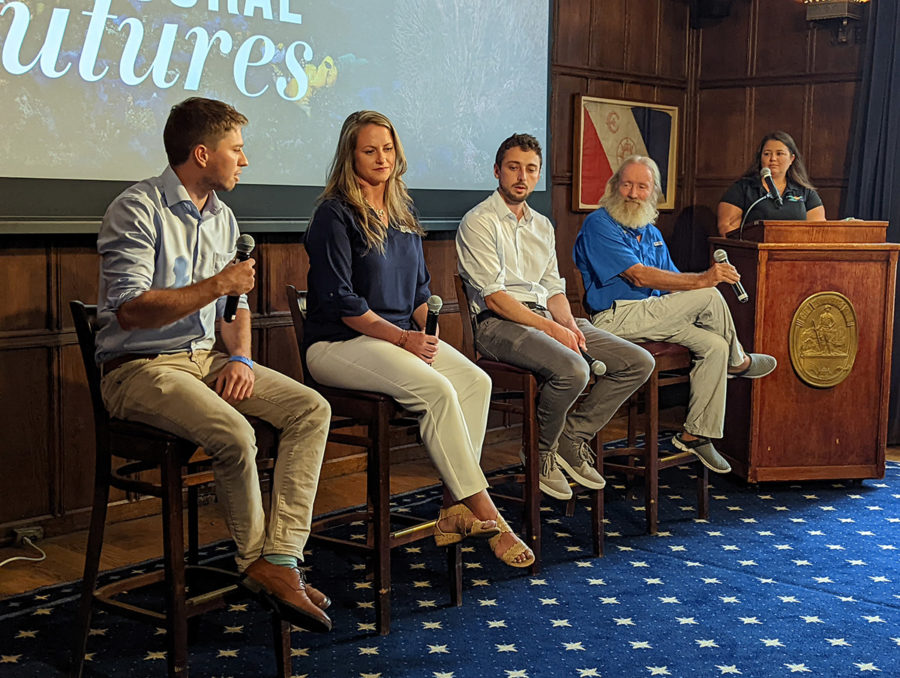
At World Oceans Week at The Explorers Club, an unofficial, week-long celebration that sandwiches the single-day event at the United Nations, I ran into David and DeeDee Vaughan, of Plant a Million Corals. The former, a coral restoration legend and savant, spoke on a coral futures panel alongside Florida Aquarium, Kaust University from Saudi Arabia and the Global Fund for Coral Reefs. All speakers anchored their talks around the hope they still have for coral around the world, but Vaughan stunned the audience by describing his work in the Keys. He’s building modular systems in shipping containers that can quickly, efficiently and effectively grow corals in acrylic tanks. Corals can reach reproductive size 10, 20 or more times faster than they would in the wild. Vaughan plans to reach a million corals in the Keys and ship out containers around the world to restore as many reefs as possible.
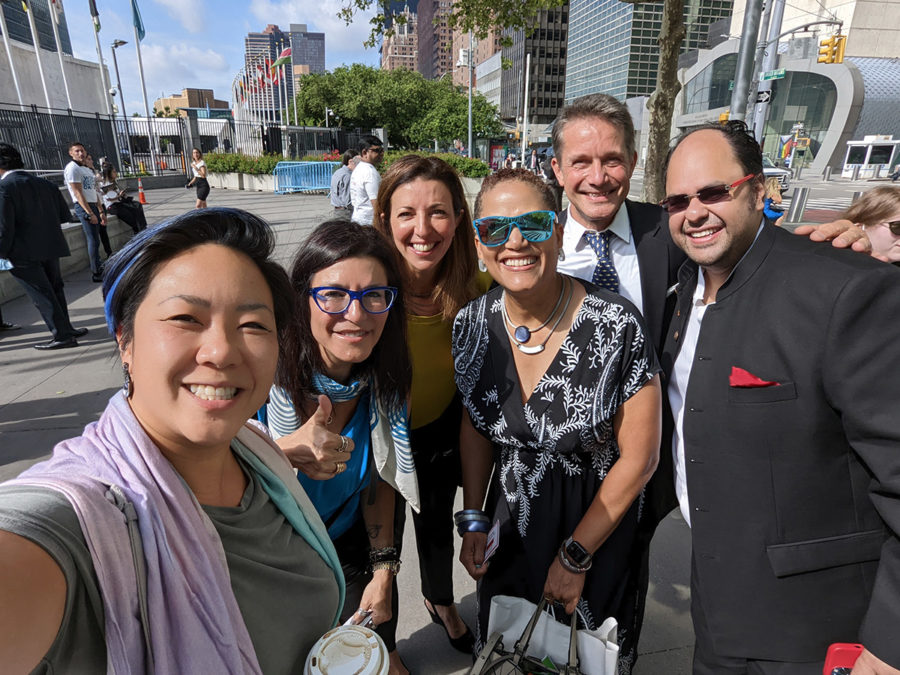
At the United Nations headquarters, I also ran into Fabien Cousteau – a good friend of the Keys and an obvious ocean advocate. We talked about his visit to Aquarius, the marine research station in Islamorada, and the debris dives he did out of Ocean Reef last year. He’s spoken to the Weekly in the past about how his stay in Aquarius inspired Proteus. For Cousteau, ocean technology and research, like his proposed Proteus project, are how we start to understand our oceans and help them.
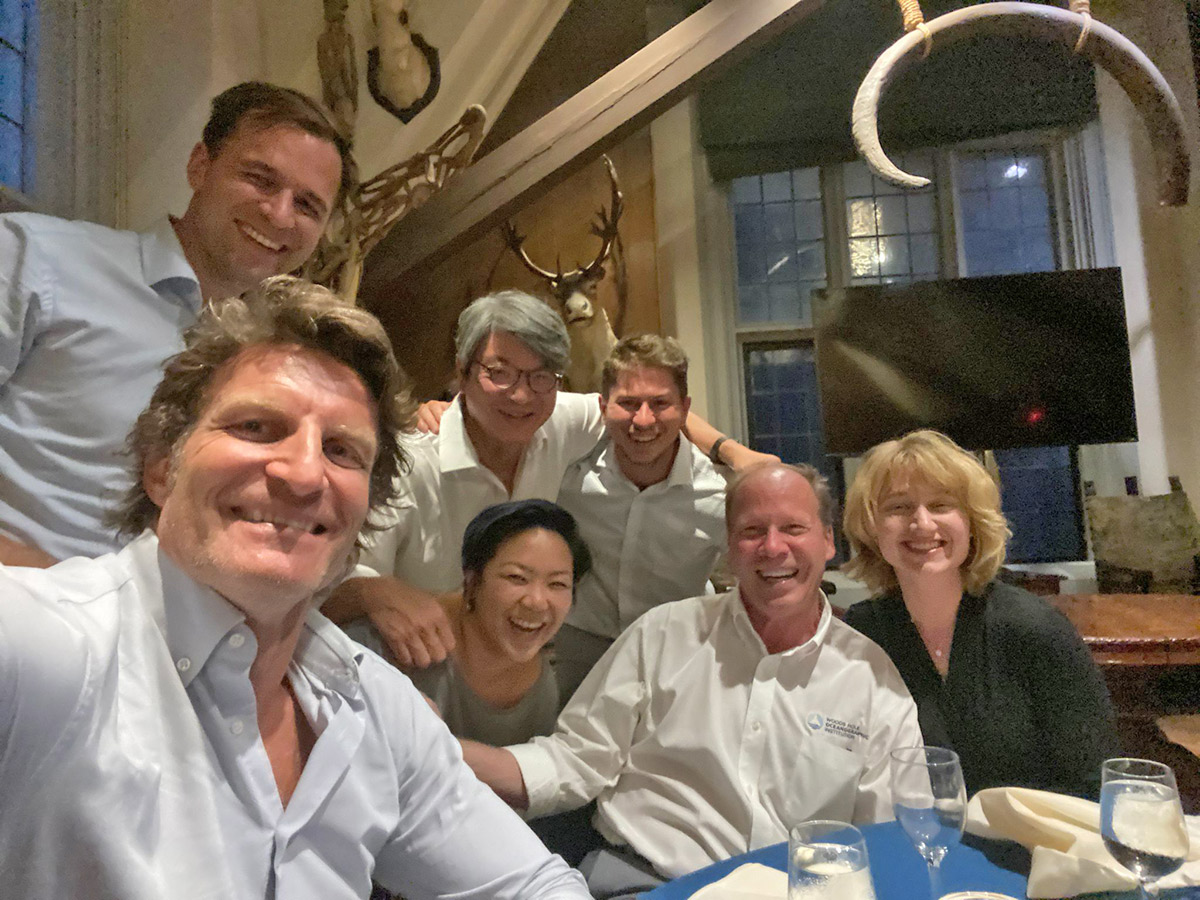
Finally, on the Thursday of World Oceans Week, I enjoyed learning more about blue carbon and the incredible mangrove. A 2018 study indicated that, pound for pound, mangroves can sequester four times as much carbon as terrestrial rainforests. That’s right – all those endangered, protected mangroves that line our coasts in the Keys are doing us a huge favor by storing excess carbon from the atmosphere into the soil beneath their roots. They also help strengthen our shorelines against storm surges, wave damage and sea-level rise. Global mangrove restoration efforts are becoming critical to keeping coastal communities like ours safe.
So there you have it: coral restoration, ocean technology and mangrove protection. Three leading ocean issues that we know well here in the Keys being discussed on the biggest blue stage in the world. I hopped on my flight back to Miami grateful for the international renown that science being conducted right here is receiving, and with a renewed commitment to our local environment. Together, the future will still be blue.

















